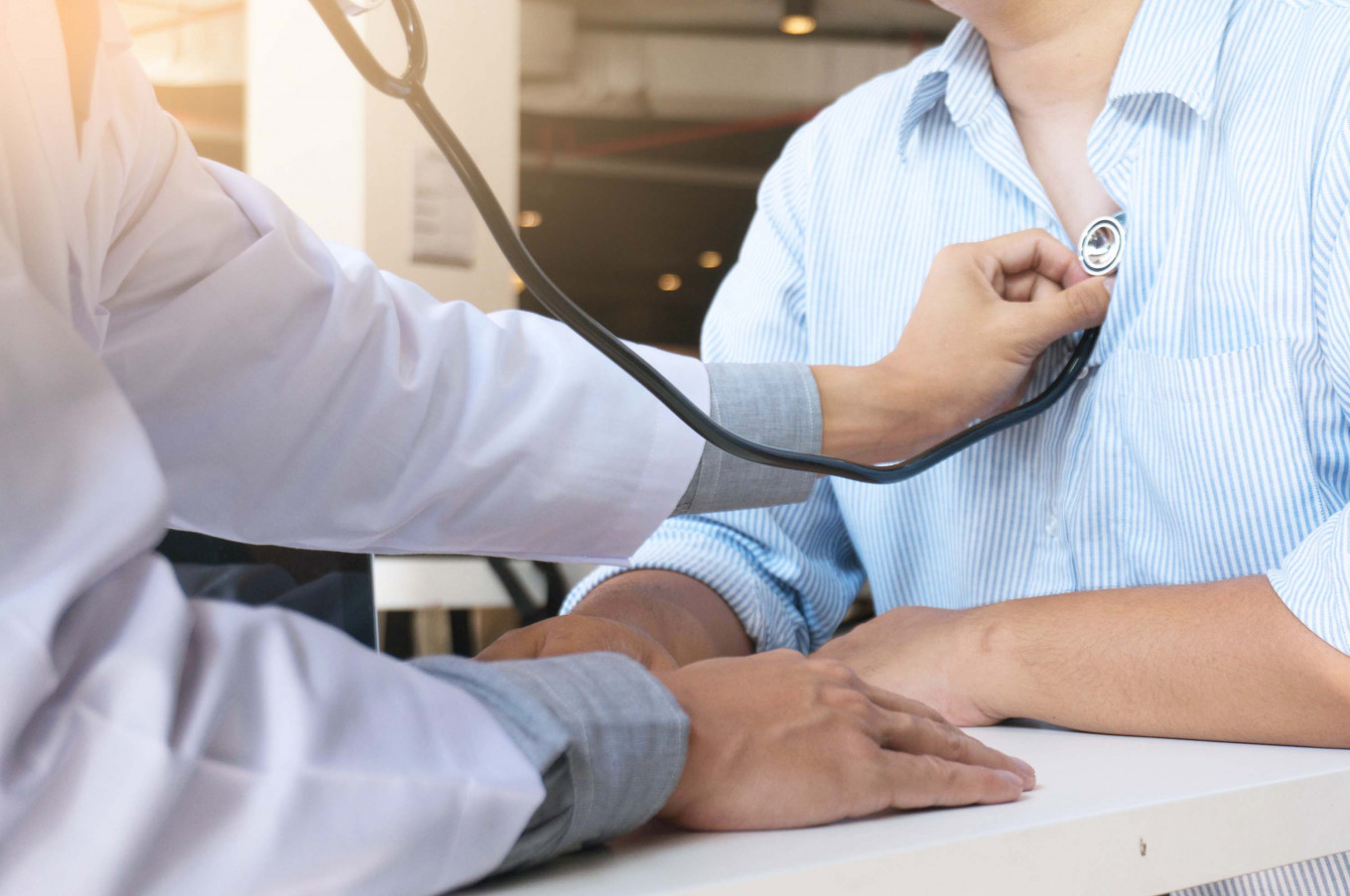Postexercise deaths tip of underlying health condition iceberg
Sudden, post-exercise cardiac attacks are not about the exercise, per se. They shed light on underlying health conditions triggered by the exercise.
Change text size
Gift Premium Articles
to Anyone

Time and time again, we have heard the tragic news of celebrities who have died suddenly of heart attacks after physical exercise.
The most recent death was that of actor Ashraf Sinclair, who died in February 2020 after attending a CrossFit workout the day before.
His sudden and tragic death has caused people to question the physical safety of CrossFit workouts, which combine various regimens to train different muscles. In addition to these highly publicized stories, a lot of people have also died suddenly after running marathons or diving.
The fact that Ashraf and some other high-profile celebrities, like Adjie Massaid and Ricky Johannes, who died in 2011 and 2013 respectively after playing futsal, passed away suddenly after physical exertion the night before has made some people question the safety of exercising late at night.
However, according to Indonesian cardiologist Vito Damay, people who blame physical exercise for these sudden deaths miss the point of the issue.
“These sudden, post-exercise cardiac attacks are not about the exercise, per se. They shed light on underlying health conditions triggered by the exercise,” Vito told The Jakarta Post recently.
So, instead of being discouraged from exercising because of these stories, it would be more constructive for people to be mindful of underlying health conditions that may require them to take extra precautions when exercising, according to Vito.
This awareness can be achieved by having regular medical check-ups, which include assessing the function of one’s heart to detect any congenital or lifestyle- and age-related problems, diabetes, hypertension or cholesterol, according to Vito.
“These cardiovascular problems – including arrhythmia or other electrical cardiovascular issues – are prone to being triggered during physical exercise, especially high-intensity exercise. While exercising, our hearts need to pump more blood to supply more oxygen throughout our bodies,” sports medicine doctor Sophia Hage told the Post.
“When our hearts cannot accommodate our bodies’ need for extra oxygen during high-intensity physical exercise, the results can be fatal,” Sophia explained.
A lot of times, we are not even aware of the symptoms that signal these cardiovascular problems. This is why medical check-ups are important, Vito said.
“Usually, people tend to get overconfident about their health because they feel young and are exercising regularly and maintaining a healthy diet. This is a common mistake that exercise enthusiasts often make. They have maintained a healthy exercise routine and diet, but they forget to get regular medical check-ups,” Vito said.
“It is almost like washing your motorcycle regularly so it looks clean without ever taking it to the auto service station for the mechanics to examine whether its machinery still works well or not,” he continued.
He advised people in their 20s to get medical check-ups once every five years, while those 40 and above should be checked annually.
“If you have some health problems such as high cholesterol, diabetes or hypertension – all of which are related to cardiovascular health – you will then be advised to take some medication before checking again in the next few months whether these conditions have improved,” Vito said.
There may also be congenital heart conditions that require you to modify your exercise intensity and frequency, which you can do in close consultation with your physical condition, according to Sophia. She stressed that there was no way for you to know that these conditions existed unless you had medical check-ups.
Medical check-ups aside, people can reduce their risk of exercise-induced sudden cardiac arrest by being more sensitive to physical red flags that they experience, according to Sophia.
“Do you have chest pain? What usually triggers such chest pain? Have you ever fainted or lost your balance out of the blue? These are warning signs that should prompt you to consult your physician before you start exercising again,” Sophia said.
Vito concluded the interview by advising people to learn resuscitation techniques to provide first aid to people who suffered from sudden heart attacks during or after exercise.









